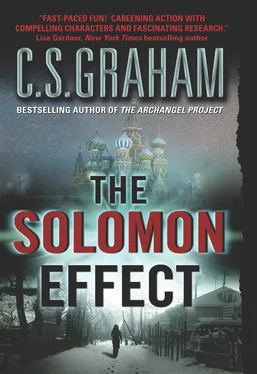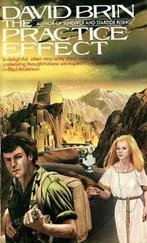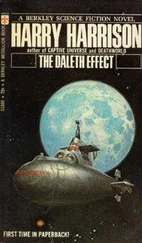“It’s always so nice operating in countries where the military keeps a tight hand on the reins,” said Jax as their footsteps echoed down the enclosed stairwell. “Little things like customs and immigration are just inconveniences, easily dispensed with in the right circumstances.”
Lowenstein’s eyes narrowed. “Catalano wasn’t kidding about you, was she?”
“Why? What did she say?”
But Lowenstein turned his back on Jax and said to Tobie, “Is this your first time in Turkey?”
She shook her head. “I was here as a kid.”
He gave her a smile that showed two rows of straightened white teeth. “So you travel a lot, do you?”
Jax turned a snicker into a cough and buried it in his fist.
They walked out of the air-conditioned terminal into a blast of dry heat just as a black Mercedes driven by a Turkish policeman slipped in next to the curb and stopped. Jax drew up short.
“This is your car?”
“That’s right. I’ve already arranged an appointment for you with the owner of the shipbreaking yard up in Aliaga. He’s expecting us this morning.”
“Us? Hang on. I don’t suppose it occurred to you that Mr. Erkan might be a lot more open to talking to the Ensign and me if we arrive without a uniformed policeman and a U.S. Air Force captain as escorts?”
“Maybe. But it’s not happening. Things aren’t as cozy between Washington and Ankara as they used to be. The last thing we need is some cowboy coming in here scattering dead bodies all over the place. I have orders from the station chief not to let you out of my sight.” He opened the back door for Tobie and said to Jax over his shoulder, “You can have the front seat.”
Jax indulged in a fantasy that involved wringing Petra Davidson’s neck and tossing her lifeless body in the wine-dark Aegean Sea. Then he slid into the seat beside the driver.
The driver’s name turned out to be Mustafa. He was lean and short, with the bushy dark mustache that seemed a requisite badge of manhood in this part of the Middle East. As they swung in an arc around the city’s sweeping bay and headed north, he chain-smoked a series of short, foul Turkish cigarettes that made Jax’s eyes water.
In the backseat, Lowenstein leaned in closer to October and said, “Do you ski?”
“Some.”
“We have a great trip planned to Oberammergau this-”
“The shipbreakers yard,” said Jax, slewing around in the seat so he could face him. “Tell me about it.”
There was a moment’s pained silence, then Lowenstein said, “It’s owned by a man named Kemal Erkan. His cousin is the Minister of the Environment, which is how he gets away with what he does. You usually see operations like this in places like India or China. They used to do it in Europe, but the costs of meeting health and safety standards got too high. Workers here have no health and safety standards, no Tyvek suits or breathing apparatus. Asbestos, dioxin-you name it, it doesn’t matter to these guys.”
“It’s a big business?” said October.
“It’s huge. Thanks to the Chinese, there’s a boom in the world’s steel industry. Only about two thirds of today’s steel comes from iron ore; the rest is recycled from stuff like cars and washing machines-and ships. You can get over a million dollars out of an end-of-life vessel.”
“So this guy’s rich.”
“You better believe he’s rich.”
Jax said, “Does he do much business in pre-1945 steel?”
“It’s one of his specialties.”
They were driving along the coast now, through dry rocky hills covered with fragrant olive groves and rows of grapevines withering with the shortening of the days. Many of the villages along this part of the Aegean had become tourist destinations, attracting overseas visitors to their sandy beaches and clear blue waters. Not Aliagra.
They came upon the shipbreaking yard just before the outskirts of town, its dirty gravel beach dominated by the looming half-dismantled hulk of what looked as if it might once have been a cruise ship. Jax eyed the mustachioed Turkish driver beside him. “How about the two of you stopping at a taverna for a raki, and letting the ensign and me take it from here?”
“Not a chance,” said Lowenstein as the Turk turned in through the gates and drew up next to a pile of rusty barrels and stained old urinals. “I’ll stay with the car. But I’m not letting you out of my sight until I put you back on that plane.”
The ship-or what was left of it-had been dragged a quarter of the way out of the water and up onto the beach. Someone had made the token gesture of casting booms around the worksite, but a spreading sheen of oil and debris fouled the water that lapped a nearby sandy beach. A haze hung over the site, the pungent smoke from old fires mingling with the fumes from a droning diesel engine.
The ship’s superstructure had already been removed. Now, men with blowtorches were cutting into the sides of the hull. Two huge 150-ton cranes loomed nearby. One stood idle, but as they watched, the second crane rattled into action, lifting a slice of the hull and swinging it toward the beach. The din was horrendous, the hiss of the blowtorches punctuated by the reverberations of a sledgehammer at work someplace out of sight within the bowels of the ship. Jax could see one man wearing an orange hard hat. The rest were bareheaded, many stripped to the waist, their work-hardened bodies browned by the sun and smudged with black grease and carbon and gleaming with sweat.
The office was in a battered construction trailer set on a weedy patch of high ground. Beyond it spread a vast open dump site where half a dozen barefoot kids were scrambling around, scavenging for anything they might be able to sell. Jax was turning toward the trailer when October touched his arm.
“I think that might be our Mr. Erkan, there,” she said, nodding to where a balding, middle-aged businessman in an exquisitely tailored Italian suit, white shirt, and tie was wading in the dirty surf beside the idle crane. A passel of shouting, gesturing workmen splashed around him. “Something must be wrong.”
Jax squinted against the gleam of sunlight reflecting off the oily water, his gaze on the silent crane. “Looks like one of the cables broke.”
Switching directions, they crossed the dirty shoreline past a bizarre assortment of refuse that ranged from sinks and copper piping to rusty metal bunks and old filing cabinets. White and brown clumps of what looked like asbestos were everywhere. As they approached, the man in the expensive suit swung to face them.
“Merhabe,” called October from the water’s edge.
Kemal Erkan was not in a good mood. Letting loose a stream of incomprehensible-to Jax-Turkish illustrated by energetically waving arms, he waded toward them, fine navy Italian wool dragging in the dirty salt water.
October answered him with a fluency that seemed to take the man by surprise. They jabbered back and forth, Erkan breaking off to shoot a glance at Jax, along with an obvious question. Who is this guy?
Jax caught his name in the reply.
Kemal Erkan said to him in heavily accented English, “You don’t speak Turkish?”
“No.”
“Then we will speak English.” He nodded toward the idle crane. “One of the cables broke, dropping a load of steel and nearly toppling the damned thing over. I’m afraid it might have put a strain on the tower. You have five minutes. Why did you wish to see me?”
Jax and October exchanged glances. Jax said, “I wanted to talk to you about a business arrangement you had with Jasha Baklanov.”
Kemal Erkan turned to walk with them along the dirty beach, away from the ship. “Which one? Jasha and I have been doing business for more than twenty years. He’s a good salvage operator.”
Читать дальше











